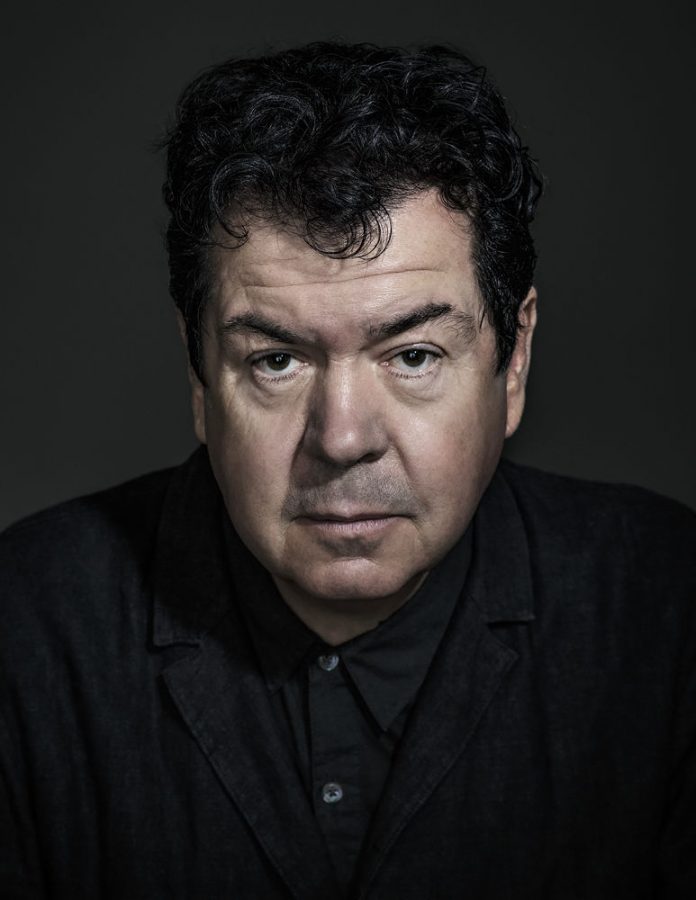The Cure’s founding member shows Chicago new memoir
Former drummer of The Cure Lol Tolhurst is unveiling his new memoir in Chicago Nov. 30 and Dec. 1, including a show he will DJ at Pleasant House Pub, 2119 S. Halsted St Dec. 1.
November 28, 2016
Long before British punk rock band The Cure broke records and influenced the punk rock music world, former drummer and co-founder Lol Tolhurst promised himself he would write a book one day.
Twenty years later, Tolhurst finally completed his goal with the Oct. 11 release of his memoir “Cured: The Tale of Two Imaginary Boys.” In the memoir, Tolhurst gives a first-hand account of the creation of The Cure, his relationship with lead singer Robert Smith and life after he left the band.
As part of the release, Tolhurst is traveling the U.S. on a promotional book tour through Spring 2017. He will be discussing his memoir at Chicago’s Soho House, 113 N. Green St., Nov. 30 and the SAE Institute of Technology, 820 N. Orleans St., Dec. 1. Tolhurst will also DJ at Pleasant House Pub, 2119 S. Halsted St., Dec. 1.
The Chronicle spoke to Tolhurst about revealing this previously unknown side of his life to the public and what he learned writing his first book.
THE CHRONICLE: Why did you write the book after all the success from The Cure?
LOL TOLHURST: [The Cure] was not the main reason to write it. I really wanted to do it, more than anything else, because I had always wanted to write a book. I have a tattoo on my shoulder of two feathers crossed as writing quills, so I knew I was going to write it a long time ago.
I got to a point in my life when I wanted to reflect and explain my life to myself because otherwise, all you are doing is going along full tilt and living life but not really examining what happened or where you went or where you want to go. It felt like a good time to do that. I don’t think I could have done it in my 30s or 40s because I would not have had enough perspective on it at that time.
What was the most challenging part of writing the book?
The book is divided into three parts and the first part is really stuff that nobody knows except myself and [Smith] and maybe a couple of other people. That was the most enjoyable part for me to write in lots of ways because it was like reliving my teenage years. The second part, which is the part The Cure fans will know, was the hardest because it’s a story about what I remember. When you remember things, memories don’t always come out chronologically. There’s a scattershot of things, and so in some parts of the book, I had to sit down and do some research and go scour the internet to try and find out if my memory correlated with the time frame. The third part is really what happened to me after I left The Cure and brings you up to date with how life is [now]. There is a lot of angst and destruction in that part, but there is also a lot of creation and redemption.
What did you learn through the process of writing?
Well, I learned to write a book. I’m not saying that to be facetious, but the process only came gradually. I thought to rent myself a little office away from my house because if I try to do it from home, I am going to sit there and go, ‘OK, what’s for lunch?’ So I went to my little office, even though it’s only a mile from my house. I would go there every day for four or five hours a day and at the end of the day I would have 1,000 or 2,000 words, if I was lucky. But if you keep doing that, you have enough for a book.
I live in Los Angeles and I have been for 32 years, and I was driving around one day and saw an advert[isement] on the side of a bus, and it said ‘The secret to good writing is… writing,’ meaning that you have to get down and do it. It has been the most creative thing I’ve done since I left The Cure.
How do you feel now that your life story is out for the public to read?
It’s got a life of its own now. It’s something that is really gratifying because I spent a long time on it—probably the best part of two years solidly—and now I have this extended book tour. I wanted to do that because the strength of this book is to be able to go and show it to people and identify it with their particular lives and how things affected them. It has given me a whole new lease on life.
What do you hope The Cure fans will take away from this book?
I would hope they see me in a new light. It is kind of weird but sometimes people’s view of me is heralded by previous events, but also from 25 years ago. I don’t know anybody who is the same as they were
25 years ago. [The memoir] helps to dispel notions and bring everyone up to date [with my life], but most Cure fans have been really supportive of the book and have been happy about it, which is absolutely great.








